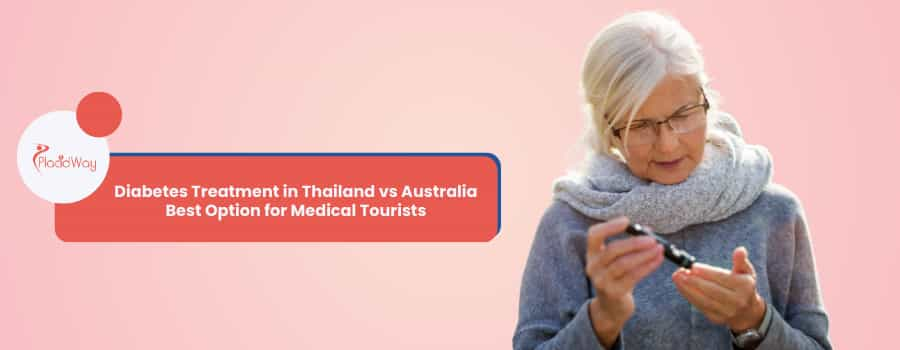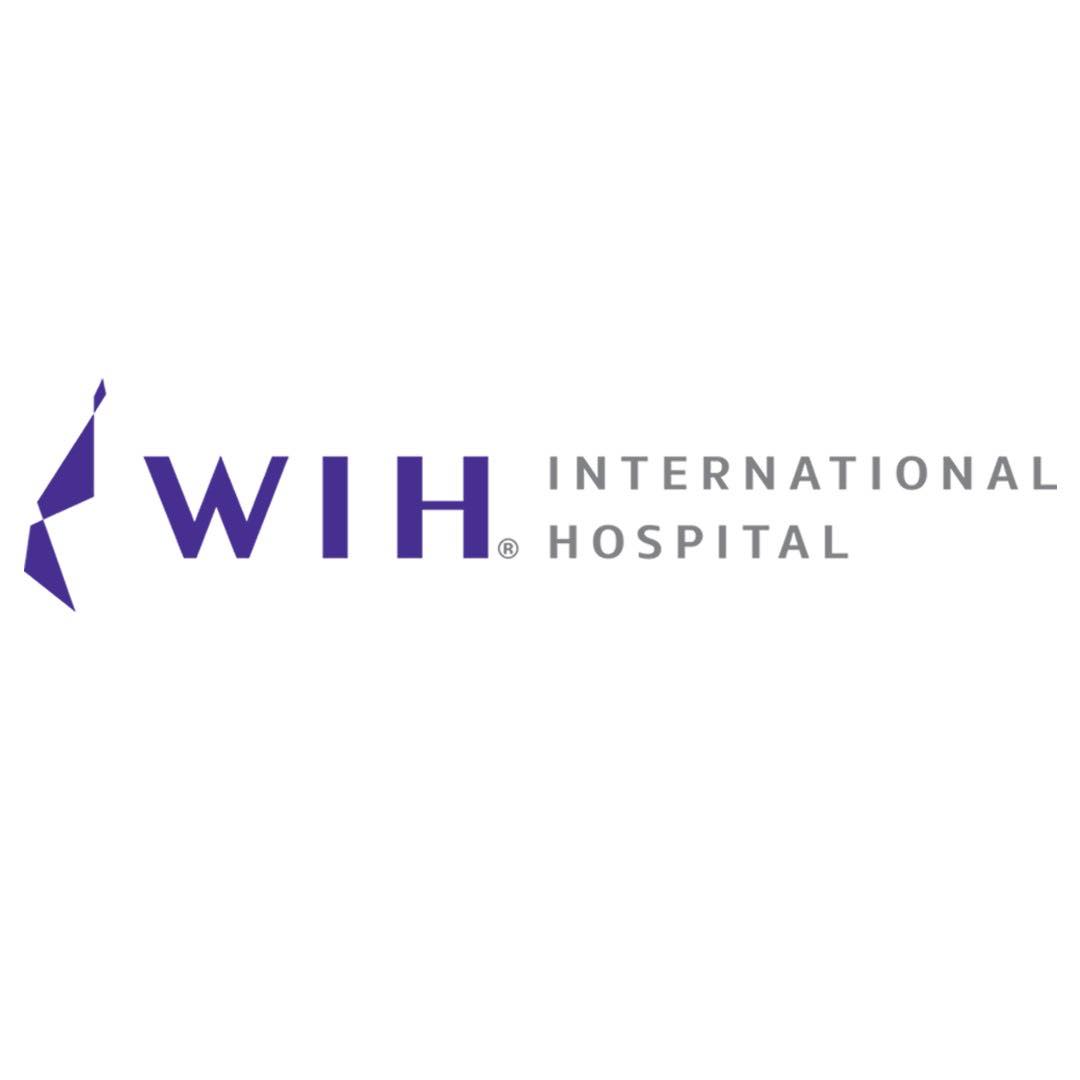
Deciding on an international destination for diabetes treatment involves weighing many factors, from the cost of care and access to advanced therapies to the overall patient experience and quality of life during recovery. For individuals seeking high-quality diabetes management, Thailand and Australia present two distinct, yet compelling, options. This guide offers a detailed comparison to help you navigate the nuances, providing clear, actionable insights for your informed healthcare decision.
Choosing Your Diabetes Care Path: Thailand's Affordability vs. Australia's Advanced System
Both Thailand and Australia offer high standards of medical care, but they cater to different patient priorities and budgets. Thailand has emerged as a global leader in medical tourism, renowned for its cost-effective treatments, excellent hospital infrastructure, and patient-centric services, particularly in cities like Bangkok, Phuket, and Chiang Mai. Patients seeking comprehensive diabetes care, including advanced treatments for type 1 and type 2 diabetes, often find Thailand an attractive option due to its significantly lower prices compared to Western nations like Australia, without compromising on quality.
Australia, on the other hand, boasts a world-class healthcare system, consistently ranked among the best globally, offering cutting-edge technology, highly specialized endocrinologists, and robust regulatory oversight. While the quality of care in Australia is exceptional, it comes with a substantially higher price tag, making it less accessible for international patients focused on cost savings. The choice between these two nations for diabetes treatment often hinges on a balance between budget constraints, desired level of care, and geographical convenience.
Diabetes Treatment in Thailand vs. Australia: A Detailed Comparison
Key Capabilities in Diabetes Management: Thailand vs. Australia
Thailand's Strengths in Diabetes Care
Thailand excels as a medical tourism destination due to its combination of advanced medical facilities and highly competitive pricing for diabetes treatment. Major cities like Bangkok, Phuket, and Chiang Mai host numerous international hospitals equipped with state-of-the-art technology, offering comprehensive care for both type 1 and type 2 diabetes. This includes sophisticated diagnostics, personalized diabetes management programs, and access to the latest medications and devices like insulin pumps and Continuous Glucose Monitors (CGMs).
Many Thai specialists have international training and clinics are often JCI-accredited, assuring world-class safety and quality standards. The patient experience is often enhanced by a focus on holistic care, excellent hospitality, and a supportive environment for recovery. For patients seeking significant cost savings on long-term diabetes management or specific interventions for diabetes complications like neuropathy treatment, Thailand presents an attractive proposition.
Australia's Strengths in Diabetes Care
Australia is globally recognized for its robust and high-quality healthcare system, providing exceptional diabetes care. Its key strengths lie in its highly skilled and internationally recognized endocrinologists and diabetes educators, stringent regulatory oversight, and a strong emphasis on evidence-based medicine. Australian hospitals and clinics offer cutting-edge technology, advanced diagnostics, and a wide array of treatment options for all forms of diabetes, including specialized programs for gestational diabetes, type 1 diabetes management, and comprehensive care for diabetes-related complications.
The country boasts excellent patient safety records, and access to the latest research and clinical trials, ensuring patients receive the most current and effective treatments. While the cost is higher, patients benefit from a well-integrated system, clear communication due to the English-speaking environment, and a high level of infrastructure support, making it a reliable choice for those prioritizing top-tier, comprehensive care within a Western healthcare framework.
Diabetes Treatment in Thailand - Pros and Cons for International Patients
Pros of Diabetes Treatment in Thailand
- Significant Cost Savings: Diabetes treatment cost in Thailand, including insulin, specialist consultations, and advanced devices like CGMs, is often 50-70% lower than in Western countries.
- High-Quality, JCI-Accredited Hospitals: Many hospitals meet international standards, offering modern facilities and advanced medical technology for diabetes care.
- Experienced, English-Speaking Specialists: Numerous endocrinologists and diabetes educators have international training and excellent English communication skills, especially in major medical hubs.
- Comprehensive Diabetes Management Programs: Access to personalized diet plans, exercise regimens, and education on self-management.
- Holistic Care and Hospitality: Thai culture emphasizes patient comfort and hospitality, enhancing the overall treatment and recovery experience.
- Medical Tourism Infrastructure: Well-developed infrastructure facilitates travel, accommodation, and patient support services, making the process smoother.
- Diverse Treatment Options: Availability of advanced diabetes treatments and specialized care for complications like diabetic neuropathy.
Cons of Diabetes Treatment in Thailand
- Travel Distance: Can be a long journey for patients from Western countries, especially those requiring frequent visits or with mobility issues.
- Language Barrier Outside Clinics: While medical staff speak English, navigating daily life, local transport, or smaller towns might pose a language challenge.
- Variable Quality Outside Major Hospitals: The standard of care can vary in smaller, non-accredited clinics or public hospitals.
- Cultural and Dietary Adjustments: Adapting to local food and climate requires careful diabetes management and awareness.
- Follow-up Challenges: Long-term follow-up care requires coordination with home country doctors or reliance on remote consultations.
Diabetes Treatment in Australia - Pros and Cons for International Patients
Pros of Diabetes Treatment in Australia
- World-Class Healthcare System: Australia's system is highly regarded, offering exceptional quality, safety, and regulatory standards.
- Leading Specialists and Advanced Technology: Access to highly trained endocrinologists, cutting-edge diagnostics, and the latest diabetes treatments.
- No Language Barrier: English is the primary language, ensuring seamless communication with medical staff and in daily life.
- Robust Regulatory Oversight: Strong government regulation ensures consistent high standards of care across public and private sectors.
- Comprehensive Long-Term Care: Integrated healthcare system supports comprehensive follow-up and management of chronic conditions like diabetes.
- Access to Clinical Trials and Research: Opportunities to participate in advanced research for innovative diabetes therapies.
- Stable and Safe Environment: A highly developed nation offering a safe and comfortable environment for treatment and recovery.
Cons of Diabetes Treatment in Australia
- High Treatment Costs: Significantly more expensive for international patients compared to many other destinations, including Thailand.
- Strict Visa Requirements: Requires a specific Medical Treatment Visa (subclass 602), which can be complex to obtain and may have limitations.
- Long Travel Distance: Located far from most major population centers, leading to high travel costs and long flight times.
- Higher Living Expenses: Accommodation, food, and daily expenses are generally much higher than in Thailand.
- Potential Wait Times: While private care is faster, some specialist appointments in the public system can have wait times.
What to Expect: The International Patient Experience for Diabetes Care
In Thailand, the international patient experience for diabetes treatment is highly streamlined and service-oriented. Patients are typically assigned a dedicated international patient coordinator who assists with appointments, interpretation, accommodation, and even local travel. Hospitals are often akin to luxury hotels, offering private rooms, delicious and diabetes-friendly meal options, and a comforting environment. The focus is on efficiency, warmth, and delivering high-quality care with a personal touch, ensuring patients feel supported throughout their diabetes management journey.
In Australia, international patients will experience a highly professional and structured healthcare environment. Communication is direct and clear, with doctors and specialists providing thorough explanations of diagnosis and treatment plans. While the hospitality aspect may not be as overt as in Thailand, the emphasis is on clinical excellence, patient safety, and adherence to strict medical protocols. Access to advanced technology and the latest research is a cornerstone of Australian care, providing a sense of confidence and reliability for diabetes patients seeking long-term management.
Real Stories from Patients Managing Diabetes Abroad
Anna & David, USA
"Managing Type 1 diabetes was becoming prohibitively expensive in the US. We chose Thailand for a comprehensive management program, and it was life-changing. The care at Bumrungrad was exceptional, and we saved thousands. Now we budget for an annual check-up trip!"
John M., UK
"For a complex diabetic neuropathy treatment, my local doctor recommended Australia. The specialists in Sydney were truly world-class, and their advanced facilities meant I received the best possible care. The cost was high, but the outcome was worth every penny for my quality of life."
Li K., Canada
"I needed a complete overhaul of my type 2 diabetes management. Thailand provided an intensive, personalized program including dietitians and exercise physiologists. The serene environment also really helped me focus. I returned home with much better control."
Priya S., India
"My family moved to Australia, and I was impressed by the comprehensive diabetes education available. The doctors are incredibly thorough, and I feel very supported in managing my condition. While costly, the peace of mind is invaluable."
Frequently Asked Questions About International Diabetes Treatment
What are the primary cost differences for diabetes treatment between Thailand and Australia?
Diabetes treatment in Thailand is significantly more affordable, often costing 50-70% less than in Australia, encompassing medication, specialist consultations, and advanced procedures. Australia, while offering high-quality care, comes with a much higher price tag due to its developed healthcare system and higher living costs.
How does the quality of diabetes care compare between Thailand and Australia?
Both countries offer high-quality diabetes care. Australia boasts a world-class, heavily regulated healthcare system with advanced technology and highly trained specialists. Thailand has many internationally accredited hospitals (JCI, HA) with modern facilities and highly skilled doctors, especially in major medical tourism hubs, providing excellent care at a lower cost.
Are advanced diabetes treatments like insulin pumps and CGMs readily available in both countries?
Yes, advanced diabetes treatments such as insulin pumps and Continuous Glucose Monitors (CGMs) are available in both Thailand and Australia. In Australia, they are part of standard advanced care, albeit at a higher cost. In Thailand, leading hospitals in Bangkok, Phuket, and Chiang Mai also offer these technologies, often at a more competitive price.
What are the visa requirements for seeking diabetes treatment in Thailand vs. Australia?
For Thailand, most nationalities can enter with a visa-exempt stay (e.g., 30 days) or obtain a tourist visa, which can often be extended. For longer treatments, a medical visa may be required. Australia generally requires a medical treatment visa (subclass 602) for non-residents seeking treatment, which involves specific application criteria and proof of funds.
Is English widely spoken by medical staff in diabetes clinics in Thailand and Australia?
In Australia, English is the primary language, so communication is generally not an issue. In Thailand, particularly at international hospitals catering to medical tourists, English is widely spoken by doctors, nurses, and administrative staff, ensuring clear communication for international patients.
How do I find a reputable diabetes specialist or clinic in Thailand or Australia?
For Australia, consult your local GP for referrals or search databases of registered endocrinologists. For Thailand, look for hospitals with international accreditations like JCI (Joint Commission International) or local HA (Hospital Accreditation). PlacidWay can also assist in connecting you with vetted diabetes clinics and specialists in both regions.
What kind of post-treatment follow-up and long-term care can I expect?
Australian care includes comprehensive post-treatment follow-up integrated into its public and private systems. In Thailand, leading international clinics offer detailed discharge summaries, remote consultations, and coordinated care plans to share with your home doctor, ensuring continuity of care after you return.
Are there specific diabetes management programs or education available?
Both countries offer robust diabetes education and management programs. Australia has government-funded and private initiatives focusing on diet, exercise, and self-management. Thai international hospitals also provide comprehensive diabetes education by dietitians and nurses, often tailored for international patients.
What are the cultural and travel considerations for diabetes patients?
Thailand offers a vibrant cultural experience and a strong tourism infrastructure, which can aid recovery. However, the tropical climate and dietary changes need careful management for diabetes. Australia offers a Westernized environment with diverse landscapes, but it's a long journey for many, and costs for travel and accommodation are higher.
Can I get medication refills easily in both countries?
Yes, with a prescription from a local doctor, medication refills are generally available. In Australia, pharmacies are widespread. In Thailand, international hospitals have well-stocked pharmacies, and medication is often more affordable than in Western countries. Always ensure you have sufficient medication for your initial stay and a plan for refills or bringing a supply from home.
Ready to Take Control of Your Diabetes?
Choosing the right destination for your diabetes treatment is a critical decision that impacts your health, finances, and overall well-being. This guide aims to provide clarity on the distinct advantages of seeking diabetes care in Thailand versus Australia. At PlacidWay, we are dedicated to empowering patients like you with objective information and access to world-class medical facilities.
Our expert Care Team can help you compare personalized diabetes treatment packages, understand transparent pricing for diabetes management programs, and connect you with pre-vetted diabetes clinics in Thailand and Australia. Let us assist you in planning your international medical journey so you can focus on achieving optimal health and a better quality of life.







.png)








Share this listing